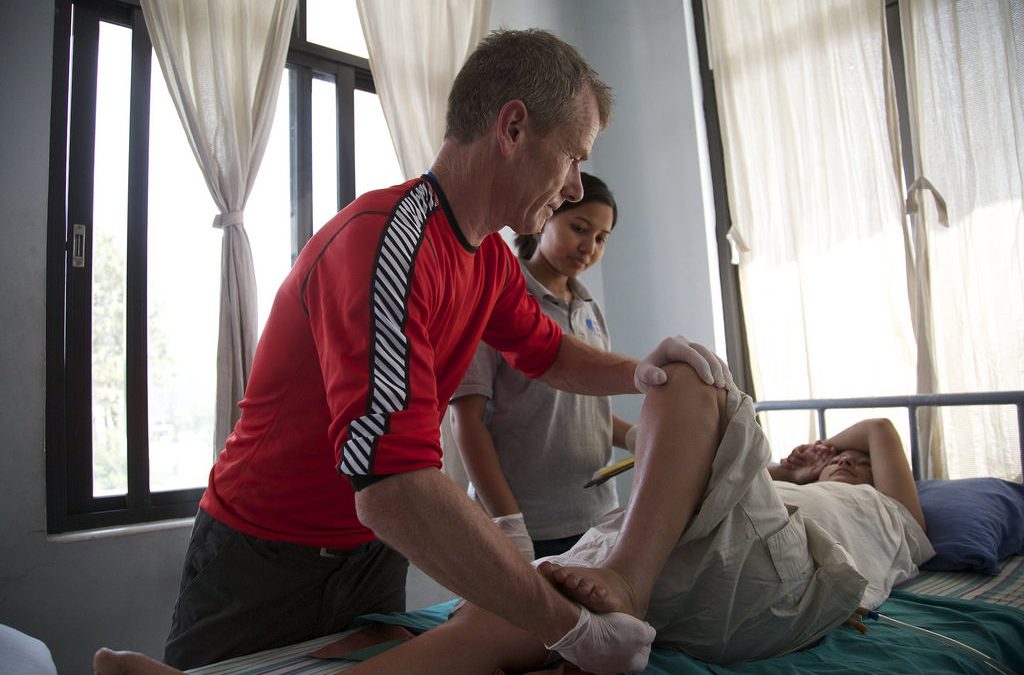Table of Contents
Career Overview
People who suffer from muscolo-skeletal disorders (physical disorders), which were caused by ageing, disease; or injury goes to physiotherapists for treatments. Their treatment procedure usually involves movement and exercise, advice, education; and manual therapy to help patients manage and even prevent diseases. This article will discuss Physiotherapist Career Guide
As this field of medicine care encompasses a huge range of conditions and types of patients; many physiotherapists usually specialize in a number of different specific areas; ranging from Sport Physiotherapy, which treats and help prevent injuries while engaging in sports, Chest Physiotherapy; which is about removing secretion build-up from the lungs of patients suffering from pulmonary diseases like cystic fibrosis, etc.
Salary
- Newly qualified physiotherapists can expect around £19,000 to £24,000 of annual salary.
- Specialists for busy private clinics and sports physiotherapists earn around £26,000 – £38,000 a year.
- Experienced physiotherapists can earn around £26,000 to £38,000 per annum.
- Team leader physiotherapists can earn up to £52,000 a year.
Responsibilities
Daily tasks of physiotherapists revolves around meeting patients, making clinical assessments; and diagnosis based on results from conducted tests; and observing the patient’s condition. Patients will be asked of his age and get tested for their range of movement, history of its case; and their response for technique of specialist assessment.
Depending on the case of the patient, physiotherapists use different therapy techniques, such as soft tissue massage, joint manipulation, etc. They may also use special equipment to treat specific symptoms.
For educating patients, physiotherapists recommend specific stretching and exercises fit for the patient’s condition. Also, they may recommend movement aids like calipers, walking sticks, etc.
Of course, they will hand over their detailed notes to other specialists the patient may require; and keep the patient’s records.
Qualifications
In UK, to be able to work as a physiotherapist; one must complete the HPC (Health Professions Council) accreditation by completing a 3 or 4 year university degree which leads to BSc in Physiotherapy. Also, one should have a least 5 GCSE grades A to C including English, Math and Science subjects; and no less than 4 AS or 3 A levels at C or above; especially biological science.
After the university, aspiring physiotherapists will have to register to the Chartered Society of Physiotherapists. Registration is free.
Skills
Because they work primarily on sick people in need of medical care; physiotherapists need to have special personal attributes to perform well on their job, which are:
- The passion to help others
- Patience and understanding
- Hands-on approach for problem solving
- Good communication skills to connect with other people, especially the elderly, children, very sick, or even mentally ill individuals
- Interested in human anatomy and sports science
Work Conditions
The children, elderly, and patients with learning difficulties, diseases or syndromes that exhibit different problems definitely require different treatment approach, care and rehab techniques. With this, physiotherapists work in wide range of settings, from hospitals to private clinics.
Regardless of the setting, be it a hospital or a private clinic, the physiotherapist will conduct his treatment on his own treatment room, which contains the basic desk and chair for administrative tasks, couch, and treatment table for the patient.






 I love to write guides for those seeking a career. My books are written for everyone in an easy to read and understandable style.
I love to write guides for those seeking a career. My books are written for everyone in an easy to read and understandable style. 